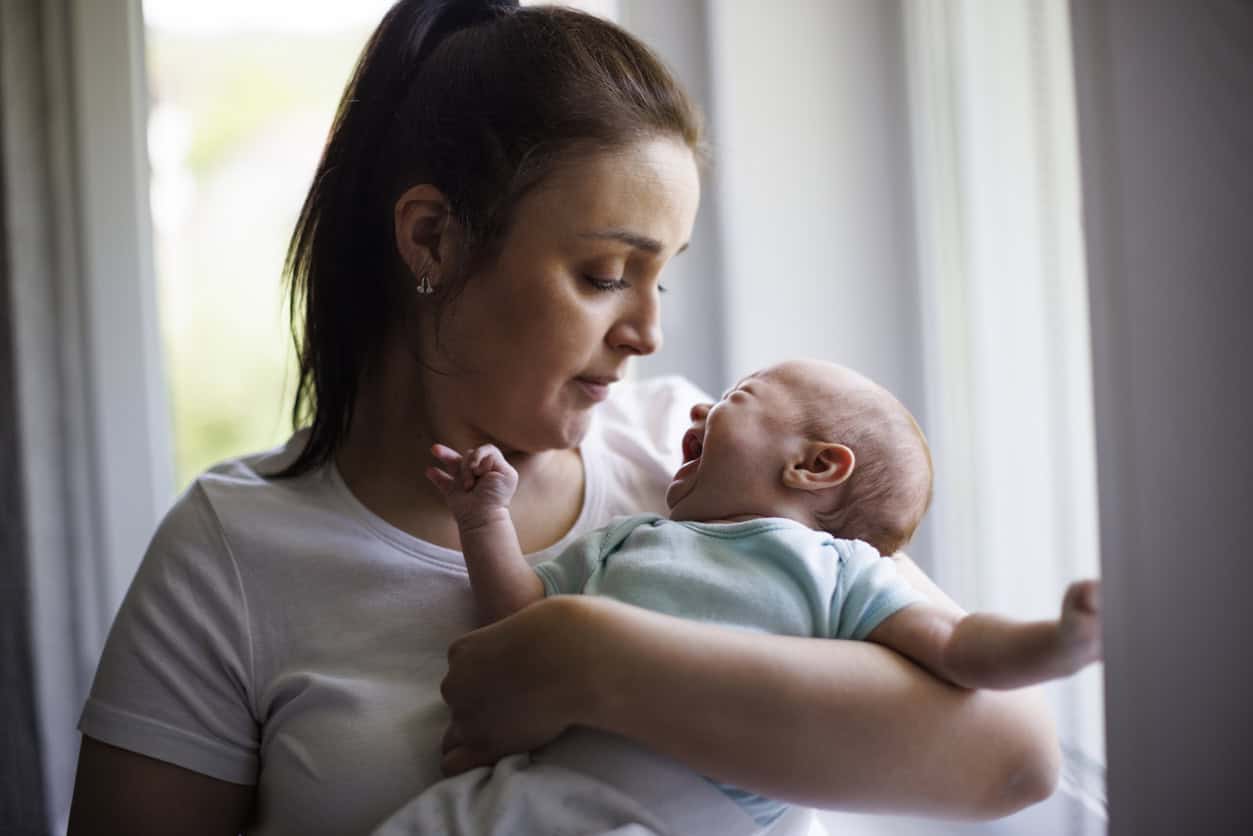Spotify | Apple Podcasts | TuneIn | Audible
When we think about preparing for a new baby, most of the attention goes to labor and delivery, but what about what happens after the birth?
Too often, parents are sent home with a newborn and very little support for their physical recovery, mental health, and emotional well-being. And when things feel overwhelming, scary, or not how they expected, they wonder if something is wrong with them. But what I want new mothers to know is: Nothing is wrong with you. However, something is missing from the way we prepare families for postpartum, and it’s time we talked about it.
In this episode of Chick Chat, I sat down with Nancy Di Nuzzo, Founder of Anamav Postnatal Care, to talk about the reality of postpartum recovery, Perinatal Mood and Anxiety Disorders (PMADs), and what it truly looks like to feel supported during one of life’s most intense transitions.
Who Is Nancy Di Nuzzo?
Nancy Di Nuzzo is a Postpartum Doula, New Parent Educator, Perinatal Mental Health Specialist, and CPA. Yes, you read that right! She went from working in finance to becoming a fierce advocate for families after living through her own traumatic postpartum experience. Now a mother of two, Nancy is the founder of Anamav Postnatal Care, a practice dedicated to supporting families with doula care, lactation support, therapy, sleep coaching, and more, both virtually and in-home.
She brings not only her professional expertise, but also deep empathy and lived experience to every conversation. Her mission? To help close the huge gap in postpartum care and make sure no parent feels like they have to “just get through it” on their own.
What We Talked About
This episode is an essential listen for any new parent, whether you’re expecting your first baby or already in the thick of postpartum life. Nancy breaks down what many people wish they had known before giving birth, and shares practical tools for building a more supported, emotionally safe experience.
Here’s what we covered:
1. What are PMADs, really?
Nancy explains the different types of Perinatal Mood and Anxiety Disorders, including postpartum depression, anxiety, OCD, psychosis, and more. She shares how they can show up and what signs to look for in yourself or a loved one.
2. Who’s most at risk — and why recurrence is real
If you’ve experienced anxiety, depression, or a PMAD in the past, your chances of going through it again are higher. Nancy helps us understand why that is and how to prepare with proactive mental health planning.
3. How birth affects postpartum recovery
Our birth experiences matter. Nancy shares how trauma, unmet expectations, or even just difficult deliveries can shape how we feel emotionally and physically afterward, and why validation and debriefing matter.
4. Why planning for postpartum is just as important (if not more) as prepping for birth
We spend months getting ready for labor, but often no time preparing for the realities of healing, feeding, sleep deprivation, and identity shifts during postpartum. Nancy walks us through what to think about and plan for when preparing for postpartum life.
5. Where to start if you’re feeling overwhelmed
From choosing the right support team to identifying one small step you can take today, Nancy offers some great tips and explains why it’s essential for mothers to prioritize their own needs and recovery.
6. How to break free from the “just get through it” mindset
Nancy shares what she would say to any mom who feels like she can’t ask for help or thinks struggling means she’s not doing a good job. (Spoiler: It’s the opposite.)
7. The mindset shifts that are essential
When families receive real support, whether from a postpartum doula, therapist, or community, they often realize they didn’t need to be “stronger”; they just needed to not do it alone. Nancy helps reframe strength as receiving support, not avoiding it.
8. One small thing you can do today
Nancy leaves us with a practical, doable tip for making postpartum feel even just a little more supported, no matter where you are in your journey.
Final Thoughts
Postpartum doesn’t have to be something you just survive. With the right planning, the right tools, and the right support, it can be a season of healing, bonding, and growth. But it starts with knowing you deserve support — not just your baby.
Nancy’s insight is such a powerful reminder that your mental health matters. Your story matters. And how you feel in this season matters. If you’re a new or expecting parent, I hope this conversation helps you feel seen, validated, and encouraged to build a postpartum experience rooted in real care.


